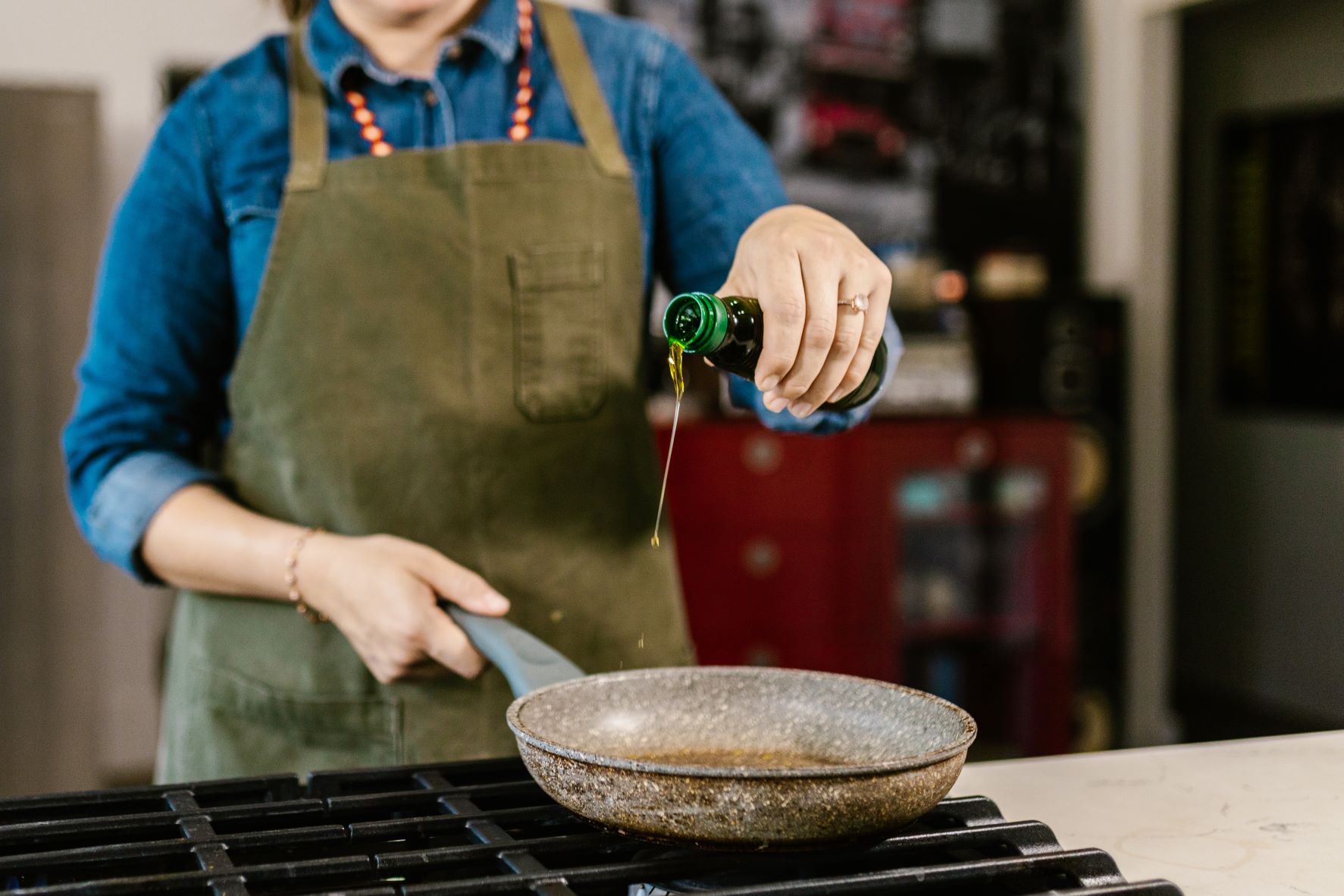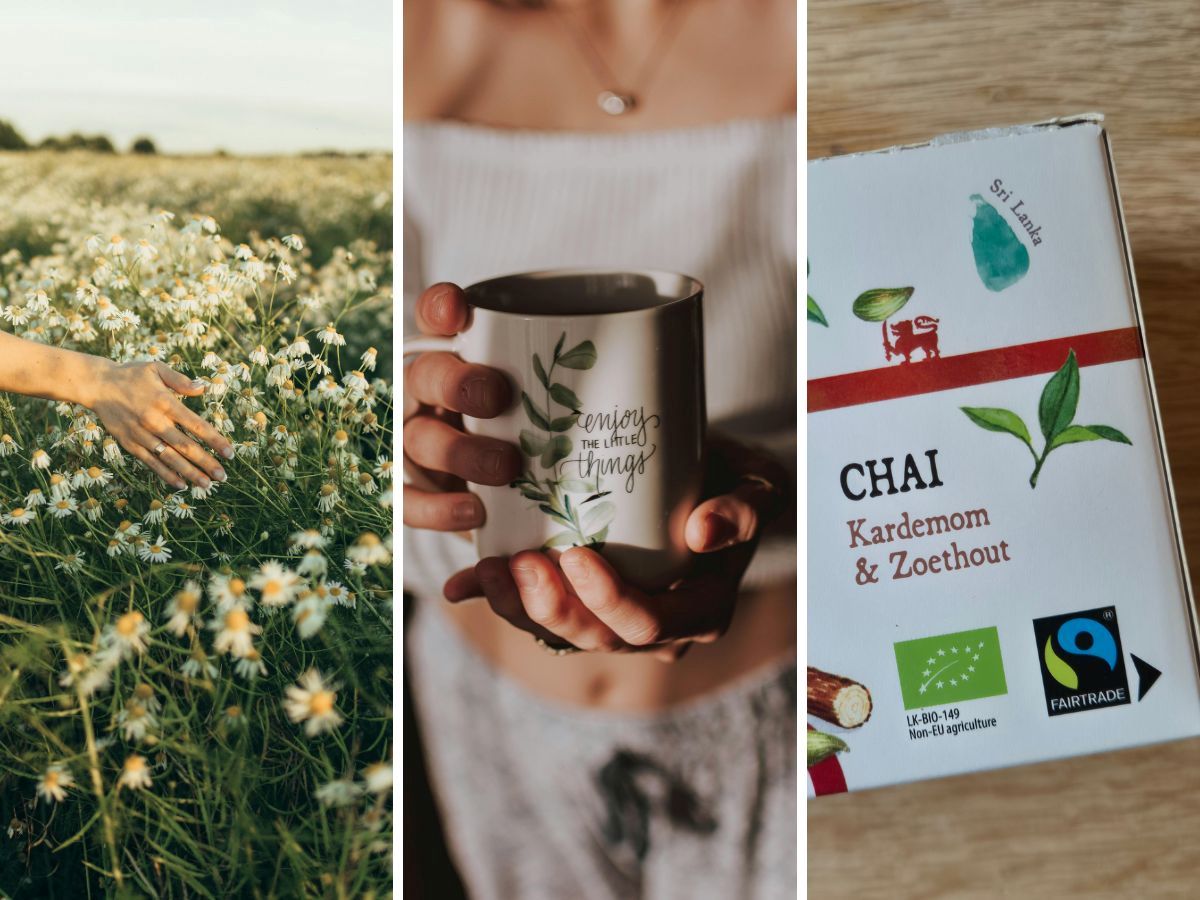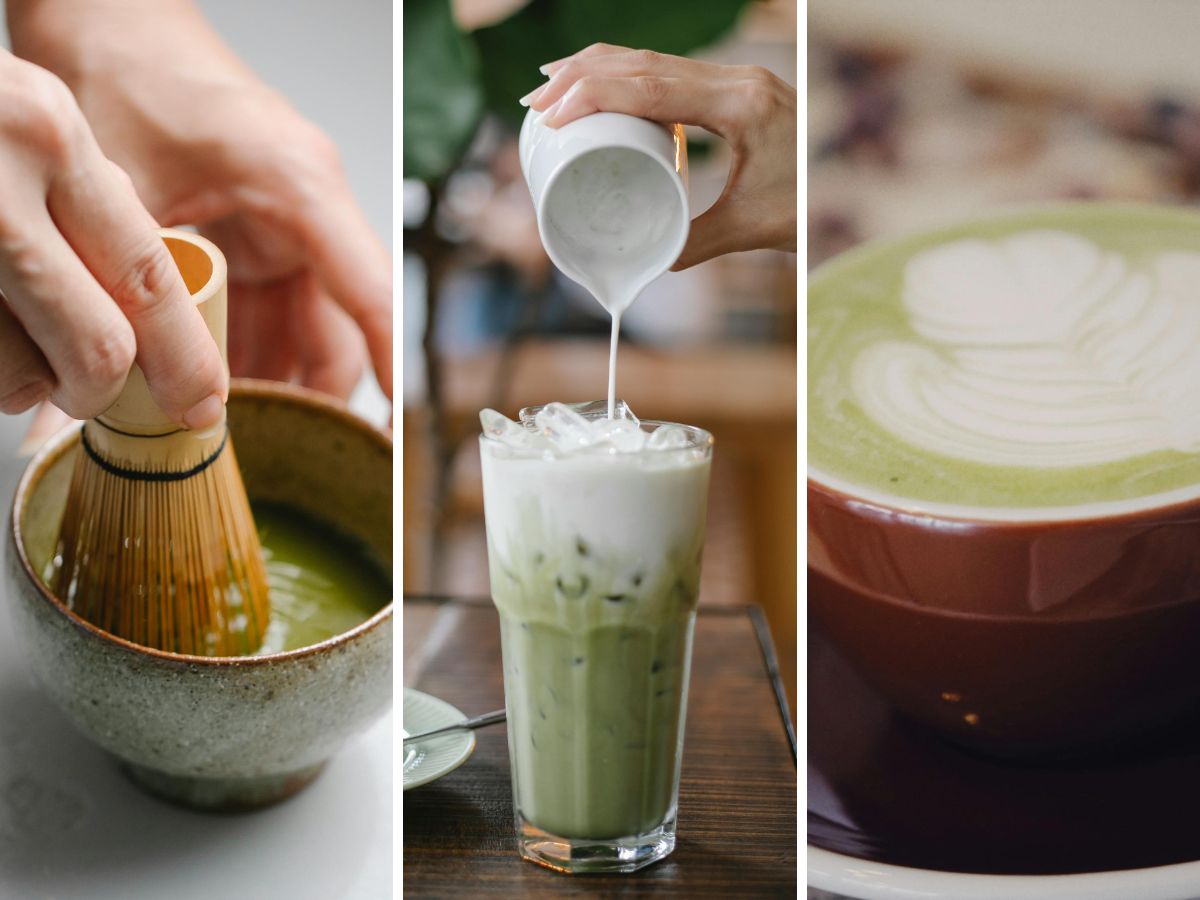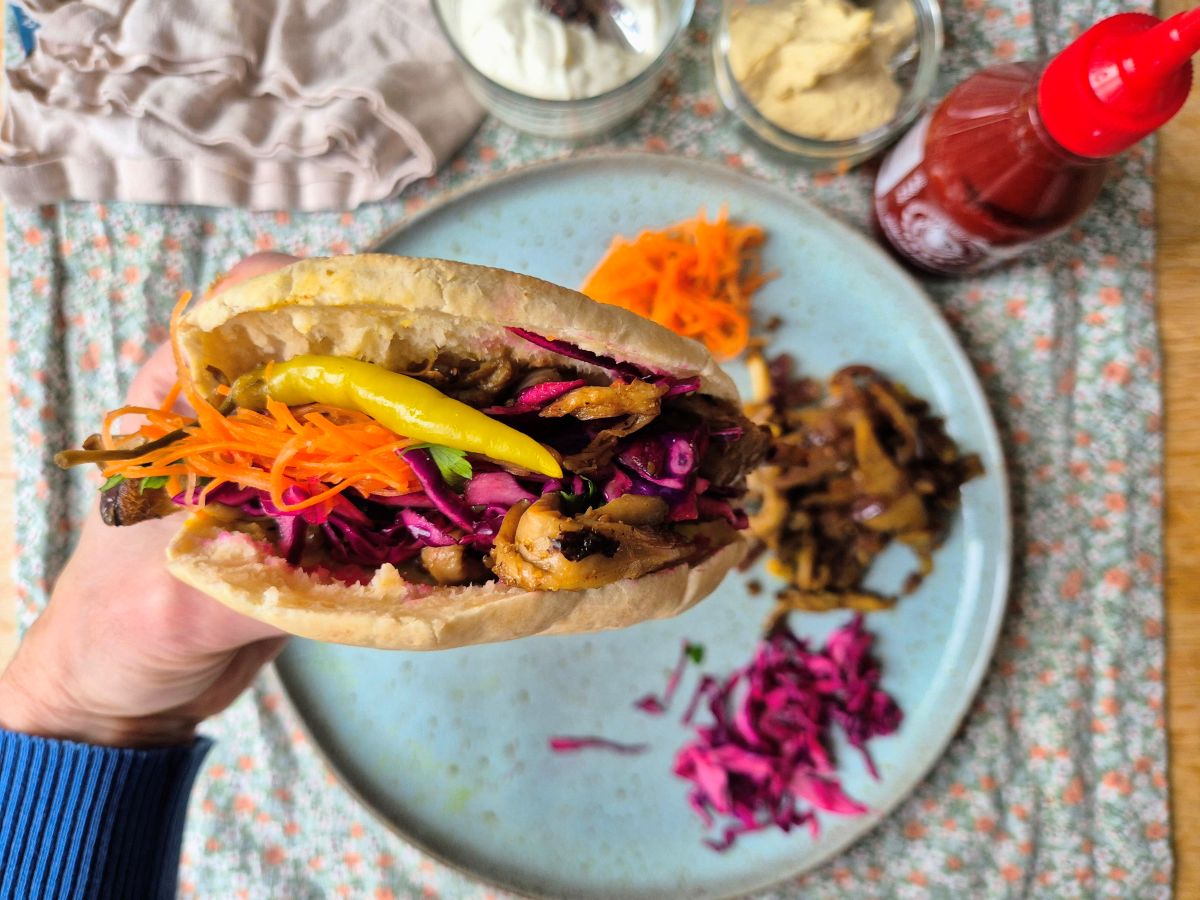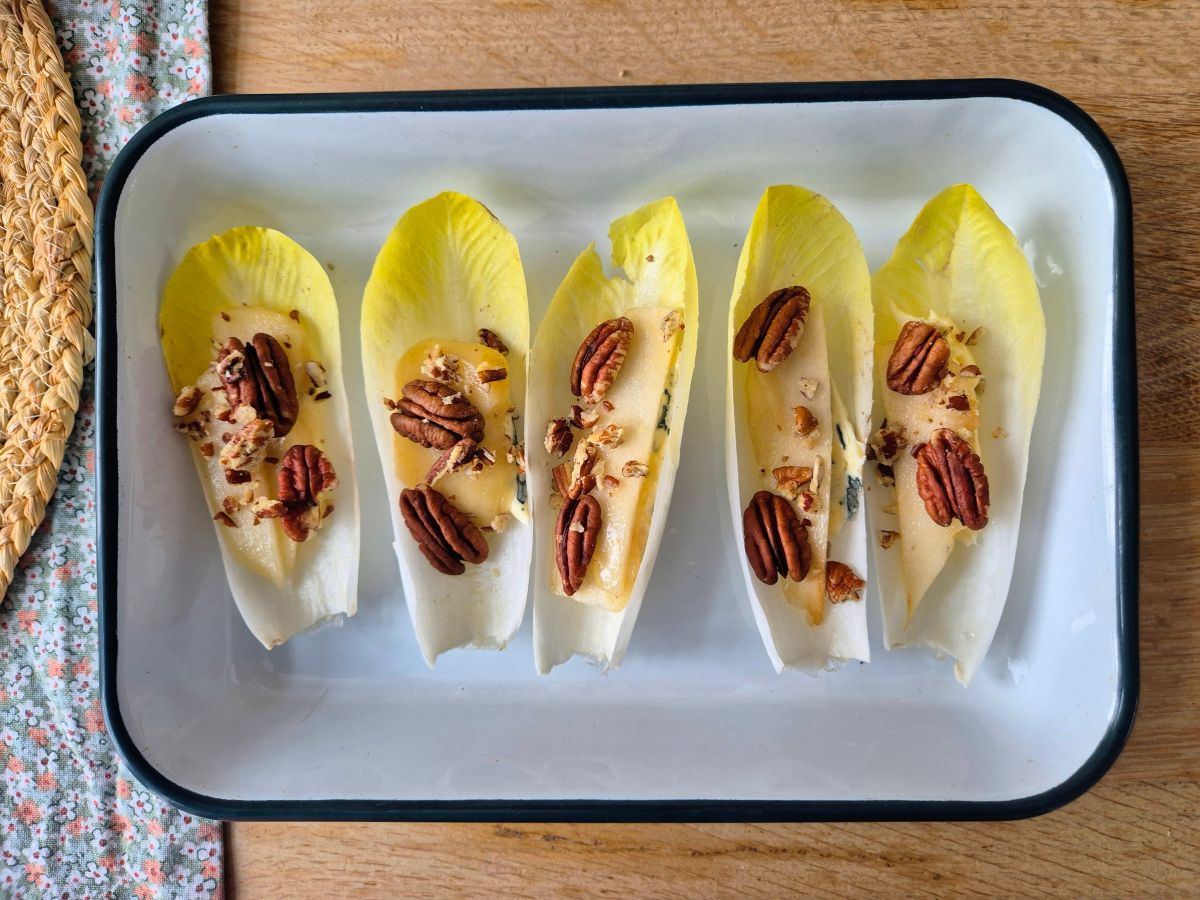You probably stand with it in your hand every day when you stand behind the pans: a bottle of oil for baking and frying. We regularly come across articles about vegetable oil, and usually these reports are not very positive. Whew, vegetable oil production is incredibly harmful to the planet. Is there such a thing as sustainable cooking oil? And if it doesn't quite exist, of all the options, what is the best oil to cook with?
Growing vegetable oil
There are lots of different oils for cooking and baking. In the supermarket, the shelf is full of olive oil, sunflower oil, groundnut oil, rapeseed and council oil, and soybean oil. But which oil is the best sustainable choice? When people talk about the (negative) impact of oil, they mainly mean the rebuild of fruits such as olives, coconuts, soya, rapeseed, linseed and sunflower seeds. So that growing is about agriculture; about sowing, fertilising, mowing, ploughing and treating with pesticides. All this creates CO2 emissions and affects nature and biodiversity. Moreover, there are harmful side effects of agriculture through forest clearing, soil erosion, and water scarcity. Besides growing the food, processing, transportation and packaging also have an impact. For most products, including cooking oil, CO2 emissions from processing, transport and packaging are much smaller than emissions from growing.
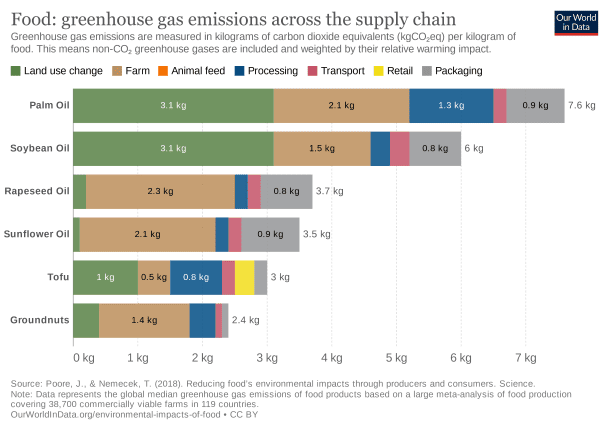
Cultivation of oil crops
Growing crops for oil for human consumption has been prohibited since 1961 tenfold. In fact, so much land is needed to make oil that today almost 30% of all available arable land worldwide is used to grow crops for oils. This means that more land is used for growing oils for human consumption than for all fruits, vegetables, legumes, nuts, root and tuber crops combined. The most widely grown oil worldwide is palm oil (36%). Palm oil is not sold in supermarkets as cooking oil, but is processed in all kinds of ready-made products, from peanut butter to detergent. Since we do not use palm oil as cooking oil, we leave it out of this equation further. Want to know more about palm oil? We have devoted a separate article to this.
Which oils should you avoid?
There are oils that it is better to use sparingly if you pay attention to sustainability. This applies to coconut oil, avocado oil, rice oil, sesame oil and linseed oil. These products have a low yield per hectare and burden the environment more than other oils. Whew, but which oil can I use to fry my meat substitute in, or put through my salad? Don't worry, there are plenty of more sustainable alternatives.
What is a sustainable oil for cooking and baking?
First of all, a reassurance; we use very little of cooking oil per day. At most, an average eater will use one or two tablespoons of cooking oil per day when cooking, baking and preparing food. So the important difference you can make is by being frugal in use. Even though we need healthy unsaturated fatty acids in a healthy diet. We get too much rather than too little. Both for your health and for a sustainable choice moderate use is best.
Organic and fair trade oil
Choosing an organic and fair-trade product when you buy, ensures less environmental and social damage. Whatever oil you choose, you make a big difference anyway if you choose a product with an organic or fair trade label. In addition, it is a good move if you choose a cooking oil that is grown and pressed in Europe, due to a shorter transport distance and often relatively better conditions.


What is the best oil to cook with, sustainably then, because there is so much choice!
Rapeseed and rapeseed oil
Rapeseed and rapeseed oil are the most sustainable choice, when it comes to cooking oil. Rapeseed and rapeseed are two very different plants. But in terms of taste, use and cultivation, there are a lot of similarities. The rapeseed and rapeseed oil sold and used in the Netherlands usually comes from (Eastern) Europe and Australia. But also in the Netherlands itself is being grown again today with rapeseed. The crop does not demand much from the soil, has a high yield per hectare and is grown in countries where water scarcity is not an issue. Moreover, the advantage of rapeseed oil is that it has a high smoke point, making it a perfect oil for frying and roasting.
Lettuce oil or soybean oil
After rapeseed oil, salad oil also comes out well. Lettuce oil is a compound product, which often consists largely of soybean oil. Soy has a relatively high yield per hectare. And the oil is a by-product left over after the soybean has been used for other purposes. The crop also has little fertiliser needed to grow. Cultivation does require a lot of water.
Peanut oil
Peanut oil is also not a wrong choice. This sustainable oil has the second smallest climate impact after salad oil. Peanut oil is extracted from peanuts. Growing peanuts has a relatively high yield per hectare. Also, growing peanuts requires relatively little water. In addition, leguminous shrubs are nitrogen fixers; thus, peanut shrubs reduce soil enrich rather than impoverish.
Sunflower oil
Sunflower oil ranks fourth in this list of sustainable cooking oils. Of all cooking oils, sunflower oil has the highest yield per hectare. But this oil, in turn, has higher CO2 emissions than salad oil due to the method of cultivation. Growing sunflowers for oil requires little water, and cultivation does not take place in countries with water scarcity. Most sunflower oil we use in the Netherlands comes from Europe. No social problems have been reported in cultivation and production. Sunflower oil is a relatively sustainable cooking oil.
Avocado oil from rescued avocados
Oil from avocados would not necessarily be a sustainable choice, were it not for the fact that Dutch company Soilmates rescues discarded avocados from importers. Avocado production is quite taxing on the planet (check this article if you want to know more). And with little yield per acre, it is not an oil to tip into a sustainable list. But at the oil of Soilmates is so different, as they make oil from avocados that would actually be thrown away. And that is good news, because with a high smoke point, lots of unsaturated fats and omega fatty acids, it is a very fine option for cooking. A journalist from Trouw unravelled Soilmates with scientists and draws positive conclusions On the sustainable properties of this oil.
Olive oil
Olive oil concludes this list of sustainable cooking oils. It is the least sustainable choice. Olive growing and olive oil production have to do with environmental issues. Soil erosion and also loss of biodiversity due to mechanical harvesting and pesticide use are a problem for nature. Olive cultivation also uses huge amounts of water in countries where water is often scarce. Yet the CO2 impact of olive oil is relatively limited. Of the better choices listed here, olive oil is the least sustainable.
Cooking without oil
It may not be the first thing you think of, but cooking without oil is quite possible. Stir-frying would also be fine in water. And you don't need oil for frying either, I read at vegan dietitian Lobke Faasen. Even for your salad, there are alternatives.
There is no such thing as the sustainable oil for cooking and baking
Actually, about all the oils we cook and fry with, there is a side note on sustainability. Environmental damage consists of the amount of land use, water scarcity, loss of biodiversity and use of pesticides. Being economical in use is the most sustainable choice. Dutch rapeseed or rapeseed oil comes out best, followed by salad oil, peanut oil and sunflower oil. Olive oil does worst when it comes to sustainability.
More sustainable buying tips from thegreenlist.nl
- Do you like coffee? You can also drink your bakkie pleur more sustainably.
- Are you a wine lover? You shouldn't underestimate the environmental impact of wine either. But there is good news: of wine you can enjoy more sustainably.
- Do you love plants and gardening? There is also something wrong with potting soil.
- Flowers love people and yet there is a huge impact behind our beloved bouquet. Find out what's wrong with flowers and how to enjoy flowers more sustainably.
Photo credits: RODNAE (Pexels) (main image), Daria Obymaha (Pexels), Cottonbro (Pexels), Mascha Bongenaar.

